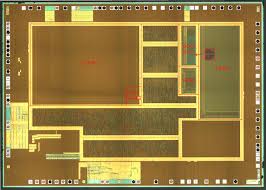Break Chip SAF-C164CI-8EM encrypted memory and extract the Firmware out from its flash and eeprom memory, then copy the program and data to blank Microcontroller cloning;
16-Bit Single-Chip Microcontroller C164CI/SI, C164CL/SL
· High Performance 16-bit CPU with 4-Stage Pipeline
– 80 ns Instruction Cycle Time at 25 MHz CPU Clock
– 400 ns Multiplication (16 × 16 bit), 800 ns Division (32 / 16 bit)
– Enhanced Boolean Bit Manipulation Facilities
– Additional Instructions to Support HLL and Operating Systems
– Register-Based Design with Multiple Variable Register Banks
– Single-Cycle Context Switching Support
– 16 MBytes Total Linear Address Space for Code and Data
– 1024 Bytes On-Chip Special Function Register Area
· 16-Priority-Level Interrupt System with 32 Sources, Sample-Rate down to 40 ns
· 8-Channel Interrupt-Driven Single-Cycle Data Transfer Facilities via
Peripheral Event Controller (PEC)
· Clock Generation via on-chip PLL (factors 1:1.5/2/2.5/3/4/5) via prescaler or via direct clock input
· On-Chip Memory Modules
– 2 KBytes On-Chip Internal RAM (IRAM)
– 2 KBytes On-Chip Extension RAM (XRAM)
– up to 64 KBytes On-Chip Program Mask ROM or OTP Memory
· On-Chip Peripheral Modules
– 8-Channel 10-bit A/D Converter with Programmable Conversion Time down to 7.8 µs
– 8-Channel General Purpose Capture/Compare Unit (CAPCOM2)
– Capture/Compare Unit for flexible PWM Signal Generation (CAPCOM6) (3/6 Capture/Compare Channels and 1 Compare Channel)
– Multi-Functional General Purpose Timer Unit with 3 Timers
– Two Serial Channels (Synchronous/Asynchronous and High-Speed-Synchronous)
– On-Chip CAN Interface (Rev. 2.0B active) with 15 Message Objects (Full CAN/Basic CAN)
– On-Chip Real Time Clock
· Up to 4 MBytes External Address Space for Code and Data
– Programmable External Bus Characteristics for Different Address Ranges
– Multiplexed or Demultiplexed External Address/Data
– Four Optional Programmable Chip-Select Signals
· Idle, Sleep, and Power Down Modes with Flexible Power Management
· Programmable Watchdog Timer and Oscillator Watchdog
· Up to 59 General Purpose I/O Lines, partly with Selectable Input Thresholds and Hysteresis
· Supported by a Large Range of Development Tools like C-Compilers,
Macro-Assembler Packages, Emulators, Evaluation Boards, HLL-Debuggers,
Simulators, Logic Analyzer Disassemblers, Programming Boards
· On-Chip Bootstrap Loader
· 80-Pin MQFP Package, 0.65 mm pitch
This document describes several derivatives of the C164 group. Table 1 enumerates these derivatives and summarizes the differences. As this document refers to all of these derivatives, some descriptions may not apply to a specific product.

